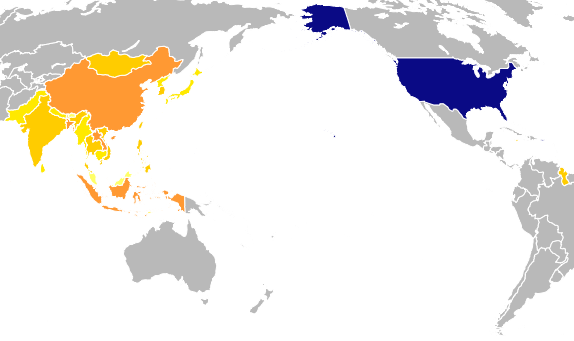With the election just a week away, more attention than ever has been leveraged by both presidential candidates in gaining the approval of Asian Americans that will head to the polls next Tuesday.
Broadly speaking, Asian American voters constitute a comparatively small but politically strategic and largely divided subset of voters. While over seventy percent of voters who identified as Asian or Pacific Islander in 2008 went for President Obama, more recent gubernatorial and senate races in Virginia and elsewhere have seen many of these voters swing to the right.
Mitt Romney’s last-minute outreach strategies have included a new video that lauds “Asian and Pacific Islander culture” as “enriching to the American nation.” Political strategists in Virginia, where Republican governor Mitch McConnell was buoyed by over sixty percent of the state’s Asian American voters, indicate that enough of these voters will stick with GOP allegiances to secure Romney’s success. Over fifty percent of Asian Americans polled about their voting preferences last month indicated that they were undecided – a significant proportion, particularly in swing states that include substantial populations of Asian American voters like Nevada and Virginia.
This year, evangelical churches whose congregations are predominately Korean or Chinese, have played a significant role as central institutions to political outreach. Romney and Obama have both visited Korean churches in northern Virginia, where Korean Christians constitute a sizable and largely undecided proportion of the split electorate. Romney’s cache among nonwhite evangelicals, including Latinos, lags considerably behind his support by white Christian voters; that said, non-white congregations have been strategic points on his campaign map, and several high profile pastors within Asian American and Latino Christian churches have rallied around the GOP this season.
In addressing Asian American voters, an issue of note is the astonishing diversity of this “category.” Those who identify as “Asian/Pacific Islander” constitute a range of backgrounds with vastly different voting histories. In 2004 and 2008, for example, South Asian and Filipino American voters overwhelmingly supported Democratic candidates in presidential elections, while Chinese American and Korean American voters indicated greater indecision.
